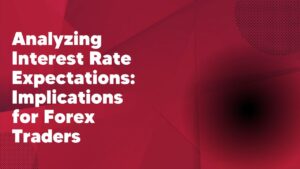In the realm of business and finance, the term “counterparty” often arises in discussions related to financial transactions, contracts, and agreements. The counterparty, in simple terms, refers to the other party involved in a contractual arrangement. An essential concept in the world of finance, understanding the role of a counterparty is crucial for professionals in various industries. This introduction aims to shed light on the significance of comprehending the counterparty’s role and its implications. It delves into the various contexts where the term is used, such as derivatives trading, investment banking, and commercial transactions. Additionally, it highlights the importance of evaluating the creditworthiness and reputation of a counterparty before engaging in any financial dealings. Ultimately, comprehending the role of a counterparty is essential for mitigating risks, safeguarding interests, and ensuring successful transactions in today’s intricate and interconnected business landscape.
Definition of Counterparty in Transactions
In the world of Forex trading, the term “counterparty” refers to the other party involved in a transaction. It is the individual, institution, or entity that takes the opposite side of a trade. When a trader enters into a trade, they are essentially making an agreement with a counterparty to exchange one currency for another at a specified exchange rate. The counterparty can be a market maker, a financial institution, or even another individual trader. It is crucial for traders to carefully consider the reputation and reliability of their counterparty before engaging in any transaction. This is because the counterparty bears the risk of defaulting on the trade or failing to fulfill their obligations. Additionally, the creditworthiness and financial stability of the counterparty should be assessed to avoid potential losses or fraud. By understanding the role and significance of the counterparty in Forex transactions, traders can make informed decisions and mitigate potential risks.
Importance of Identifying Counterparties
Identifying counterparties in the Forex industry is of utmost importance for both traders and brokers. Counterparties refer to the entities or individuals who undertake the opposite side of a financial transaction. These counterparties can be other traders or financial institutions. One of the key reasons for identifying counterparties is to ensure the credibility and reliability of the parties involved in a trade. This is crucial as traders need to have confidence in their counterparties to honour their obligations and fulfill the terms of the trade. Additionally, the identification of counterparties helps in assessing the potential risks and establishing the necessary risk management strategies. By knowing the counterparty, traders can gauge their financial stability, reputation, and trading history. This information helps in making informed decisions and minimizing the chances of getting involved in fraudulent or risky transactions. Furthermore, the process of identifying counterparties also aids in establishing relationships and networks within the industry. A trader who successfully identifies reputable and trustworthy counterparties can build valuable connections, gain access to better trading opportunities, and establish a positive reputation within the Forex market. Thus, the identification of counterparties plays a crucial role in ensuring a secure, transparent, and profitable trading experience in the Forex industry.
Risks Associated with Counterparties
In the Forex industry, one of the significant risks that traders face is associated with counterparties. When engaging in currency trading, market participants often deal with intermediaries such as brokers, banks, or other financial institutions. While these counterparties play an essential role in facilitating trades, they also introduce certain risks. One primary risk is the possibility of the counterparty defaulting on its obligations. This can occur if the intermediary becomes insolvent or faces financial difficulties, leading to potential losses for the trader. Additionally, counterparties may engage in unethical practices such as fraud or manipulation, which can negatively impact a trader’s positions. Traders must conduct thorough due diligence on their counterparties to minimize such risks. It is crucial to evaluate the financial stability, reputation, and regulatory compliance of potential intermediaries. Furthermore, diversifying counterparties can help spread the risk and minimize the impact of any potential default. By understanding and managing the risks associated with counterparties, traders can navigate the Forex market more effectively and safeguard their investments.
Assessing the Creditworthiness of a Counterparty
When trading in the Forex industry, it is crucial to assess the creditworthiness of a counterparty before entering into any transaction. This is because dealing with a financially unstable or unreliable counterparty can lead to significant risks and potential losses. To assess the creditworthiness of a counterparty, several factors must be considered. Firstly, the financial strength and stability of the counterparty should be evaluated by analyzing their financial statements, cash flow, and debt ratios. Additionally, the credit rating and history of the counterparty can provide valuable insights into their ability to honor their financial obligations. It is also essential to review the counterparty’s business and management practices, as well as their regulatory compliance record. Lastly, it is recommended to seek recommendations or feedback from other market participants who have previously worked with the counterparty. By thoroughly assessing the creditworthiness of a counterparty, Forex traders can mitigate risks and make informed decisions when engaging in transactions. This ensures a secure and reliable trading environment, promoting trust and confidence in the Forex market.
Legal Considerations in Dealing with Counterparties
When engaging in Forex trading, it is crucial to understand the legal considerations involved in dealing with counterparties. One of the main aspects to consider is the jurisdiction in which the counterparty operates. Different countries have different regulations and laws governing Forex trading, and it is important to ensure that the counterparty complies with these regulations. Additionally, it is essential to carefully review and understand the terms and conditions of any agreements or contracts with the counterparty. This includes assessing the risks associated with the counterparty’s financial stability, as well as any limitations or restrictions on certain trading activities. Due diligence is key when selecting a counterparty, and it is recommended to conduct thorough research and seek legal advice to ensure compliance with all relevant laws and regulations. By being aware of the legal considerations in dealing with counterparties, Forex traders can protect their assets and minimize potential risks associated with their trading activities.
Mitigating Risks through Contractual Terms
Mitigating risks is crucial in the Forex industry, where volatility and unpredictability are common. One effective way to minimize risks is by using contractual terms. These terms act as a legally binding agreement between parties involved in Forex transactions. One common contractual term is the stop-loss order, which allows a trader to automatically close a position if it reaches a certain price level, limiting potential losses. Another important term is the take-profit order, which closes a position at a predetermined price level to secure profits. Additionally, traders can utilize margin calls, which specify the level at which a trader must add more funds to maintain their open positions. This helps to reduce the risk of account depletion. Lastly, fixed spreads can be established in contracts, ensuring traders have consistent and transparent transaction costs. Overall, by using these contractual terms, Forex participants can safeguard themselves against potential risks and create a more secure trading environment.
Managing Reputation Risk with Counterparties
In the fast-paced and ever-changing world of Forex trading, managing reputation risk with counterparties is crucial. Reputation risk refers to the potential damage to an individual or company’s reputation based on the actions or behavior of their counterparties. This risk can arise from various factors, including fraudulent practices, unethical behavior, or even association with controversial entities. To effectively manage reputation risk, traders and firms must conduct thorough due diligence on potential counterparties before entering into any transactions. This due diligence should involve researching the counterparty’s background, examining their track record, and evaluating their reputation within the industry. Additionally, maintaining open lines of communication with counterparties and regularly reviewing their performance can help identify any red flags or warning signs. In the event of suspicions or concerns about a counterparty’s reputation, steps should be taken to minimize exposure and protect one’s own brand. This may involve reducing or terminating business relationships, notifying regulatory authorities, or seeking legal recourse if necessary. By prioritizing reputation risk management and staying vigilant in their dealings with counterparties, Forex traders and firms can safeguard their reputation and preserve the trust of their clients and stakeholders.
Best Practices for Dealing with Counterparties
When it comes to dealing with counterparties in the Forex industry, there are a few best practices that every trader should be aware of. Firstly, it is crucial to conduct thorough due diligence before entering into any agreements or partnerships. This includes researching the reputation and track record of the counterparty, as well as assessing their financial stability and regulatory compliance. Secondly, establishing clear and comprehensive contractual agreements is essential. These agreements should outline the rights and responsibilities of both parties, as well as any dispute resolution mechanisms. Additionally, it is important to maintain ongoing communication with counterparties to ensure transparency and address any concerns or issues that may arise. Regular reviews and assessments of the counterparty relationship should also be conducted to monitor performance and mitigate any potential risks. Finally, having a contingency plan in place is vital. This includes identifying alternative counterparties in case of a breakdown in the current relationship and developing strategies for managing any potential disputes or conflicts that may arise. By following these best practices, traders can minimize risk and establish more successful and robust relationships with their counterparts in the Forex industry.
Conclusion
In conclusion, understanding the role of a counterparty is crucial for successful business transactions. A counterparty holds the key to the completion of an agreement or contract, and their reliability and trustworthiness are of utmost importance. By comprehending the responsibilities and obligations of a counterparty, individuals or organizations can make informed decisions and minimize risks. Counterparties play a significant role in managing potential conflicts and mitigating financial and legal issues that may arise during a transaction. Maintaining open lines of communication and mutual respect with a counterparty is essential for building strong business relationships and ensuring smooth and efficient operations. Overall, by recognizing the importance of counterparties and investing time and effort into understanding their role, individuals and organizations can enhance their chances of achieving their business objectives and fostering lucrative partnerships.
1. What is the role of a counterparty in a financial transaction?
A counterparty is a party on the other side of a financial transaction, with whom you enter into an agreement or contract. They can be an individual, company, or financial institution.
2. Why is the counterparty important in a financial transaction?
The counterparty plays a crucial role as they are responsible for fulfilling their obligations and ensuring the smooth execution of the transaction. They are a key factor in determining the overall risk associated with the transaction.
3. How do I assess the creditworthiness of a counterparty?
Assessing the creditworthiness of a counterparty involves analyzing their financial stability, credit ratings, past performance, and reputation in the market. This helps in evaluating their ability to meet their financial obligations.
4. What are some risks associated with dealing with a counterparty?
Some risks associated with dealing with a counterparty include credit risk, where the counterparty may default on their obligations, and operational risk, which refers to the risk of errors or disruptions in the transaction process.
5. Can I mitigate counterparty risk?
Yes, you can mitigate counterparty risk by diversifying your counterparty exposure, conducting thorough due diligence, implementing proper risk management procedures, and using financial instruments such as collateral or guarantees.
6. What is the role of a collateral in managing counterparty risk?
Collateral acts as security for a financial transaction and helps mitigate counterparty risk. It provides an additional layer of protection by allowing the lender to seize and sell the collateral in case the counterparty fails to fulfill their obligations.


